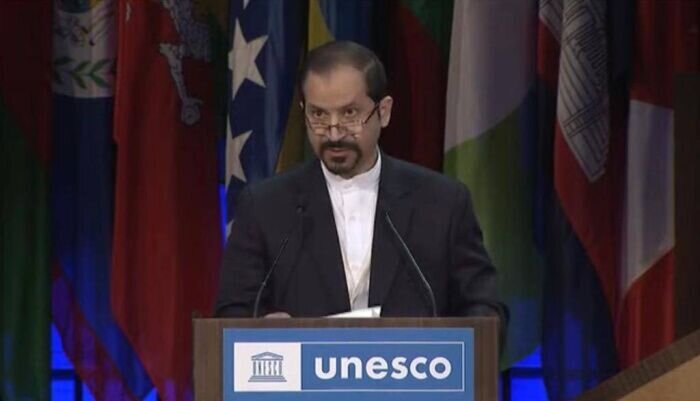Tehran encourages bigger cultural flow among UNESCO member states

TEHRAN - Iran's Deputy Minister of Science, Research and Technology Peyman Salehi has introduced a program to facilitate the exchange of ideas and knowledge among the members of the United Nations Educational, Scientific and Cultural Organization.
“The Islamic Republic of Iran, suggests that a program entitled, 'Science Road' be defined and initiated by UNESCO to facilitate the free exchange of ideas and knowledge.”
UNESCO may declare its preparation to make use of all its historical and contemporary potential in this respect, the official said in an address to UNESCO’s 42nd Session of the General Conference.
Referring to the UN body’s long attention to historical routes and traveling, Salehi said: “It has always been valuable for us in this Organization to study the history of the cultural and civil exchanges among nations in the form of such roads as the Silk Road, Spice Route, and Salt Road.”
He stated there has always been a road throughout the ages for exchanging knowledge and wisdom, besides having roads for exchanging commercial goods, which can be called the “Science Road”, consisting of a network of roads for scientists and scientific ideas.
“This is the road that has linked the East of the world to the West profoundly and has acted as a messenger of peace and progress linking scientific eminence with eminence in ethics.”
Salehi added the most important message of the history of science for the time being is that the accumulation of science in one civilization and its lack of expansion would reduce the opportunity for prosperity and would result in recession and even digression.
“This road, which is a complex and intertwined network of roads for exchanging science while observing ethical principles, can pave the way for the materialization of an objective which has been explicitly echoed in the preamble to the Constitution of UNESCO, wherein there is mention of free exchange of ideas and knowledge and adding exchange instruments among nations and using them for mutual understanding.”
This way, Iran suggests that a program entitled, “Science Road”, be defined and initiated by UNESCO to facilitate the free exchange of ideas and knowledge, the official said.
Elsewhere in his remarks, the official reminded the attendees of Iran's strategic location that has endowed the nation with a profound legacy of knowledge exchange.
“This historical backdrop has transformed Iran into a cultural bridge, fostering intellectual and cultural interactions that have transcended borders and civilizations. JundiShapur, the oldest university in the world in the southwest of Iran, can be mentioned here as an example, the 1750th anniversary of whose establishment was acknowledged by UNESCO in 2017.”
This rich heritage of knowledge exchange is not just a relic of the past but a living testament to Iran's enduring commitment to promoting intellectual collaboration, he explained.
In this context, it is strongly suggested that the Tehran Cluster Office should be promoted to a multisectoral regional office and continue to embrace our unique position in facilitating cross-cultural interactions, the official noted.
AFM
